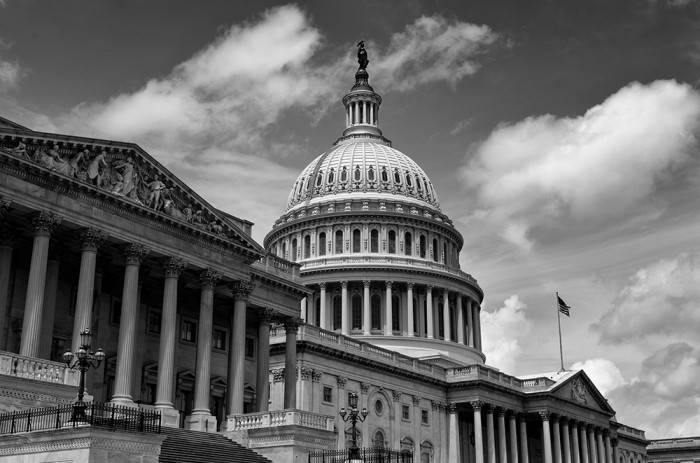DHS
PA Rural Health Transformation Project Summary Now Available
OMHSAS and OMAP Issue Juvenile Post-Carceral Programming Bulletin
The Pennsylvania Department of Human Services’ (DHS) Office of Mental Health and Substance Abuse Services (OMHSAS) and the Office of Medical Assistance Programs (OMAP) have jointly issued the Medical Assistance Bulletin Targeted Case Management Services for Eligible Juveniles Enrolled in Medical Assistance Prior to Release From a Carceral Setting, implementing Section 5121 of the Consolidated Appropriations Act, 2023. Eligible juveniles are individuals under 21 years of age who are determined eligible for MA or an individual 18–25 years of age who was determined eligible for the mandatory eligibility group for former foster care children.
This bulletin advises providers of billing procedures for the physical health (PH) and behavioral health (BH) Targeted Case Management (TCM) services provided to eligible juveniles enrolled in the Medical Assistance (MA) Program within 30 days of release from a carceral setting and for at least 30 days following release. This bulletin also advises providers of a new provider specialty (Spec) for TCM services.
Questions and comments can be sent electronically. You can also contact RCPA Policy Associate Emma Sharp with any questions.
DHS Releases New Work Requirements Resource for SNAP Recipients & Applicants
Under new federal rules, to keep or become eligible for SNAP benefits, some recipients will have to meet work requirements that include working, volunteering, or participating in an education or training program for at least 20 hours a week (or 80 hours each month) AND report that they are meeting these work requirements.
To help SNAP recipients and applicants find out if they need to meet this requirement, the Pennsylvania Department of Human Services (PA DHS) has launched a new online screening tool.
By answering a simple set of yes or no questions, SNAP applicants and recipients can find out if they need to meet the work requirements, if they are already meeting the work requirements, or if they are eligible for an exemption.
The screening tool is not a final determination of whether someone is meeting the work requirements or is eligible for an exemption, but it can help recipients and applicants have a more informed conversation with their caseworker.
The new work requirements will apply to Pennsylvanians who:
- Are between 18-64 years old;
- Do not have a dependent child under 14 years old; and
- Are considered physically and mentally able to work.
In addition, being a veteran or a current or former foster youth age 18–24 will no longer be an exemption.
Some people may still be exempt from work and reporting requirements if they meet a different exemption. You can learn more about these work reporting requirements, who they affect, and more about exemptions at DHS’s website.
State Budget Investments Help Fight Food Insecurity
Pennsylvania’s charitable food network and our agricultural community are vital to keeping our neighbors and communities fed. Governor Shapiro’s 2025/26 budget delivers major investments to combat hunger, strengthen the charitable food network, and support Pennsylvania farmers. The budget includes a historic $11 million increase for food security, including:
- $3 million for the State Food Purchase Program and $1 million for the Pennsylvania Agricultural Surplus System (PASS);
- $2 million for a new state Food Bucks program to supplement SNAP; and
- $5 million in new funding to Pennsylvania food banks.
Help Us Spread the Word
PA DHS has developed a communications toolkit to help Pennsylvanians understand the changes happening to SNAP.
We ask RCPA members, advocates, and stakeholders to view and share the toolkit, which includes sample text, social media posts, and more.
PA Releases Rural Health Transformation Plan
From Pennsylvania Capital-Star “Pa.’s Rural Health Application Reveals Priorities in Federal Funding Request,” November 20, 2025:
Pennsylvania is hoping to secure its own slice of a $50 billion rural health fund in the face of federal Medicaid cuts, with a focus on bolstering a beleaguered workforce and expanding health access for more than two million people.
The Rural Health Transformation Fund was a last-minute addition to President Donald Trump’s summer budget bill that imposed Medicaid work requirements and cut upwards of $51 billion in funding to the commonwealth over the next decade. That new fund is worth roughly 37% of the estimated lost Medicaid funding in rural areas…
The 67-page application requests up to $200 million in annual funding over the next five years, totaling $1 billion. Its six focuses include: technology and infrastructure, workforce, maternal health services, behavioral health services, aging and access, and emergency medical services and transportation.
The U.S. Department of Human Services is expected to award funding by the end of the year.
Key objective targets are:
- Access to care: More than 85% of Pennsylvanians can get a routine primary care appointment within four weeks and urgent care appointments within one week.
- Digital connectivity and telehealth: More than 85% of rural hospitals and clinics will have broadband and telehealth functionality. More than 50% of rural hospitals and clinics connected via Fast Healthcare Interoperability Resources.
- Workforce adequacy: Reduce rural hospital vacancy rates by 10% for key direct care roles. Add three new rural training programs.
- System sustainability: More than 60% of systems partnered with rural Community Health Centers for specialty care.
- Health outcomes: Reduce the number of pregnant women living in rural areas with inadequate prenatal care by 20%.
From the PA Rural Health Transformation (RHT) Program Application:
Pennsylvania’s rural health transformation strategy is grounded in a balance of statewide coordination and regional leadership and collaboration. Pennsylvania’s “Health Hub” state agencies (Human Services, Health, Aging, Insurance, Drug and Alcohol Programs), and other partner agencies will establish clear strategic priorities focusing on access, workforce, maternal health, aging, behavioral health, EMS and infrastructure. Pennsylvania will leverage statewide technical expertise, evaluation, and financial oversight and support. Strong regional rural care collaborative will be composed of a roster of regional stakeholders that prioritize local needs, develop effective local sustainable solutions, and leverage existing resources and assets.
Pennsylvania will leverage established regional entities that coordinate regional economic development. These Partnerships for Regional Economic Performance (PREP) organizations are long-standing, quasi-governmental organizations that convene regional stakeholders, administer federal and state grants, collect local data, report outcomes, and catalyze public and private partnerships for regional economic development. They bring established governance structures, convening power, and a track record of successful cross-sector collaboration. PREPs (Figure 2) will convene regional stakeholders to create Rural Care Collaborative (RCCs) to align initiatives with regional economic planning and development – making the RHTP investments sustainable and promoting long-term partnerships.
If you have any questions, please contact RCPA COO and Mental Health Policy Director Jim Sharp.
ODP to Give Overview of Waivers on December 4
Waiver 101: What is a Waiver, and What Does It Do?
December 4, 2025
5:30 pm – 7:00 pm
Register Here
The Office of Developmental Programs (ODP) invites individuals with intellectual disabilities and/or autism (ID/A) and their families to join in a virtual discussion with members of the Division of Policy and Program Innovation. These sessions are informal, meaning the conversation will not be recorded, and rules will be set before the session starts to ensure everyone feels comfortable and safe to provide questions and comments. The session will be held through Microsoft Teams.
Please note: This event is being held only for individuals and family members; this is not an event for someone who is only a professional.
What Will Be Covered?
ODP staff will provide an overview of the ID/A Centers for Medicaid and Medicare (CMS) waivers available in Pennsylvania. This session will consist of a brief history of ID/A services in PA, what ODP is, and how the “waivers” came to exist and their purpose. The session will also include time to explore the Department of Human Services’ (DHS) and ODP’s websites for this information.
Philabundance Shares Information, Resources as Lapse in SNAP Benefits Takes Effect
DHS Launches Human Services Helpers Program
The Pennsylvania Department of Human Services is launching Human Services Helpers, a Substack that will cover updates on DHS programs, news from the agency, and how organizations and partners can help their communities. Specifically, as DHS implements changes required by the federal government under HR1, Human Services Helpers will share resources and tips to help Pennsylvanians affected by these changes understand what is happening and what they must do to keep their benefits. News on the federal government shutdown and its impact on programs like SNAP and LIHEAP will also be shared through this platform.
Sign up for updates today and be a helper for PA!
Please contact your respective RCPA Policy Director with any questions.
RCPA Shares White Paper on IBHS: The Case for Center-Based Services
OCYF to Host Listening Sessions on PA Children and Families Initiative

The Pennsylvania Department of Human Services (DHS) recently launched an initiative focused on improving the outcomes that matter most: meeting the needs of children and families and keeping children safe. The goals of the initiative are to make sure that children and families have access to the support and services they need for children to grow and thrive in a safe home, reduce involvement with the child welfare system, and support successful transition out for those already involved in the child welfare system.
DHS Secretary Val Arkoosh invites you to upcoming listening sessions, where more details about the initiative will be shared. As part of these sessions, DHS will be seeking your feedback on this initiative, particularly involving actionable ideas around prevention, diversion, crisis intervention, and once involved, what is needed to successfully transition out of the child welfare system. An overview of the initiative can be found here. Please review these slides prior to the session.
Your voice matters, and your input will help shape the future of child welfare in our Commonwealth. We look forward to hearing from you and working together to support children and families across Pennsylvania.
How to Participate:
The PA Children and Families Initiative will host four public listening sessions. DHS encourages you to register for the session that corresponds to your region (see schedule below). However, if you are unable to attend your region’s designated session, you may register for another session that better fits your schedule.
There are two ways to provide feedback during the listening sessions:
- You may submit comments using the chat function at any point during the session.
- You may register to speak during the event. Each speaking slot is limited to two (2) minutes per participant. To maximize speaking opportunities, we ask that individuals (or organizations or providers) only sign up to speak at one (1) listening session. Speakers are also invited to contribute additional comments in the chat if two (2) minutes is not sufficient.
Speaking slots are limited and will be allocated as time allows. If you wish to speak, please indicate your interest in the registration form. After you register, you will receive an invitation to attend the session. Please note that only registered participants will be able to attend the event. Speakers will receive a confirmation email with further details.
Webinar Sessions: Please visit the link for your preferred session to register.
- Central Region | Tuesday, September 23 | 2:00 pm [Register Here]
- Counties Served: Adams, Bedford, Blair, Cambria, Centre, Clinton, Columbia, Cumberland, Dauphin, Franklin, Fulton, Huntingdon, Juniata, Lancaster, Lebanon, Lycoming, Mifflin, Montour, Northumberland, Perry, Snyder, Somerset, Union, York
- Western Region | Friday, September 26 | 1:00 pm [Register Here]
- Counties Served: Allegheny, Armstrong, Beaver, Butler, Cameron, Clarion, Clearfield, Crawford, Elk, Erie, Fayette, Forest, Greene, Indiana, Jefferson, Lawrence, McKean, Mercer, Potter, Venango, Warren, Washington, Westmoreland
- Southeast Region | Monday, September 29 | 2:30 pm [Register Here]
- Counties Served: Berks, Bucks, Chester, Delaware, Montgomery, Philadelphia
- Northeast Region | Tuesday, September 30 | 3:30 pm [Register Here]
- Counties Served: Bradford, Carbon, Lackawanna, Lehigh, Luzerne, Monroe, Northampton, Pike, Schuylkill, Sullivan, Susquehanna, Tioga, Wayne, Wyoming
Your feedback is essential to this initiative, and DHS looks forward to your participation!
Please contact Emma Sharp with any questions.
















